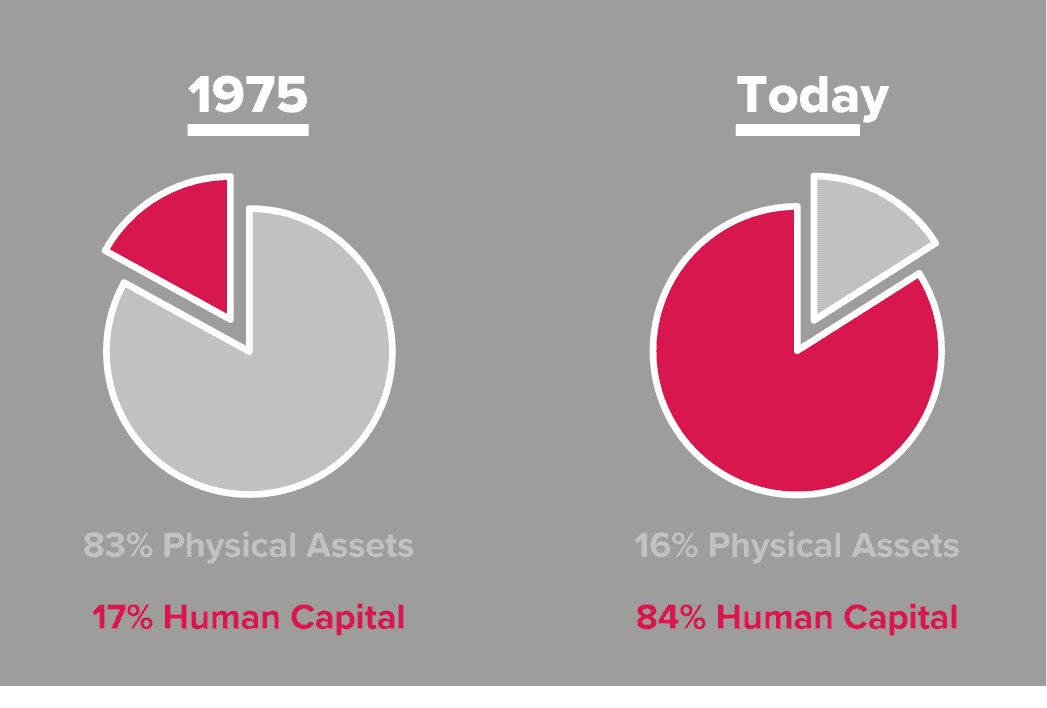Why employees prefer opportunities over financial incentives
How to enable talent to find the best fit for their capabilities and your organization

Talent leaders across industries understand that it’s challenging to keep employees engaged, particularly after a few tumultuous years. While many look to perks to retain top talent, one of the most common carrots to dangle is proving to be ineffective: increasing pay.
In a recent Gallup poll, just 21% of global workers report feeling engaged at work. With three buckets of engagement listed—engaged, not engaged, and actively disengaged—it’s up to business leaders to begin correcting this worrisome trend that is leading to a surge in voluntary resignations, increased burnout, and 50% of US workers feeling stress and anxiety at their jobs on a daily basis.
How employees value incentives—both professional and financial
Everyone has their own motivations, but strengthening an employee’s sense of career autonomy proves to be one of the best ways to improve engagement. Gloat’s Great Resignation 2.0 survey showed that the top two reasons employees voluntarily left their jobs were for better pay and more opportunities to grow and do new work; however, the gap between the two shrank drastically—from 19 percentage points in 2021 to just 9 points last year.
Some talent might look for opportunities that work toward creating a better culture, others a place to grow their own capabilities, but the common thread remains constant: talent leaders have to listen to their people.
Prioritizing personal growth: A job that provides opportunities for learning, development, and advancement allows employees to grow both personally and professionally. This not only increases their skill set but also their earning potential over time, a stark advantage over a one-time pay increase.
Alignment with personal values and passions: A recent Gloat Research survey shows that 86% of workers feel that it is either important or very important that their work aligns with their values, passions, and interests. They want to work for a company that shares their values and is making a positive impact on society. A job that provides opportunities to make a difference, whether in the community or in their industry, can be highly motivating and fulfilling.
Better work-life balance: In today’s fast-paced world, work-life balance is becoming increasingly important to employees. A job that provides a healthy work-life balance allows employees to focus on their personal lives while still achieving their professional goals. This is why flexible work arrangements, such as telecommuting, are becoming more popular—so much so that a recent YouGov poll showed that 51% of employees would quit their jobs if hybrid work was eliminated.
Upskilling and reskilling opportunities: Employees value opportunities for skill development and career growth. A job that provides ongoing training and learning experiences is highly attractive to employees, as it enables them to continuously improve their skills and knowledge.
Leveraging opportunities with compensation in tandem
Despite the advantages of opportunities, proper compensation cannot be ignored. A recent Mercer survey shows that 75% of employees report that inflation and economic uncertainty are significantly increasing their financial stress and ignoring these needs is to ignore the human behind the title. However, when increasing compensation is not feasible, it’s imperative that talent leaders make sure their employees feel valued, supported, and motivated. Businesses and people together are feeling mounting pressures from turbulent economic outlooks; making sure that talent feels supported during these times can help assuage some of these external worries.
Companies with strong cultures and shared values believe that investing in their employees is the key to success, and that creating a supportive work environment is critical to employee satisfaction and wellbeing. However, some talent leaders fear that prioritizing employee engagement is a zero-sum game: every effort toward making employees more comfortable can detract from business priorities, the two seemingly at odds with each other. Improving employee satisfaction is usually associated with increased salary compensation, more spending on non-business needs (internal perks, like office amenities and more), and a shift of focus away from “getting the job done”.
Yet the reality shows quite the opposite: Business units with engaged workers have 23% higher profit when compared to others with miserable workers. While a delicate balancing act, the benefits of creating a positive work environment are well worth the effort.
Attracting and retaining top talent is a major challenge for companies in today’s labor market. Organizations may not be able to offer the highest salaries with tightening budgets, but they must find other ways to appeal to employees, such as offering opportunities for personal and professional growth, a supportive work environment, and a sense of purpose.
Employees are increasingly interested in the concept of a talent marketplace, where they can showcase their skills and connect with companies looking for top talent. Such platforms help employees find projects and roles that align with their goals and have greater control of their career paths.
This model also benefits companies, as they have access to a wider pool of qualified candidates and can connect with employees with the skills and experience they need. Connecting a talent marketplace with workforce intelligence solutions can help organizations understand the capabilities of their workforce and how they compare to industry standards, helping drive more intelligent talent decisions and need-based L&D strategies.
Balancing employee needs with company goals
The benefits of creating a supportive and positive work environment, such as increased job satisfaction and motivation, improved mental and physical wellbeing, and a stronger sense of commitment to the company, make it well worth the effort. Businesses that can find creative solutions to these challenges will be well-positioned for success in the competitive job market.
To see how your organization and your people can benefit from increased growth opportunities, learn how Gloat’s Talent Marketplace makes it possible.





